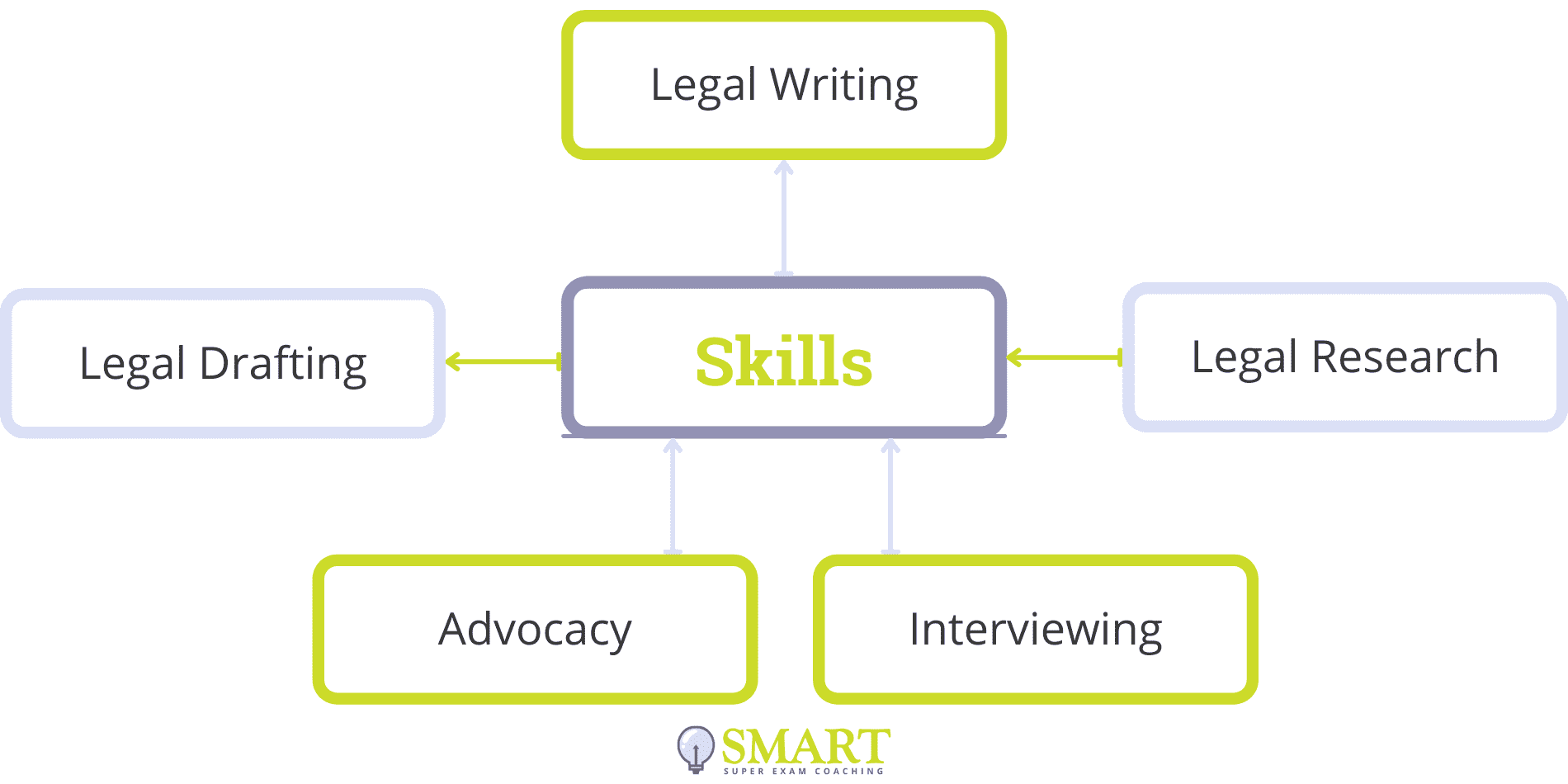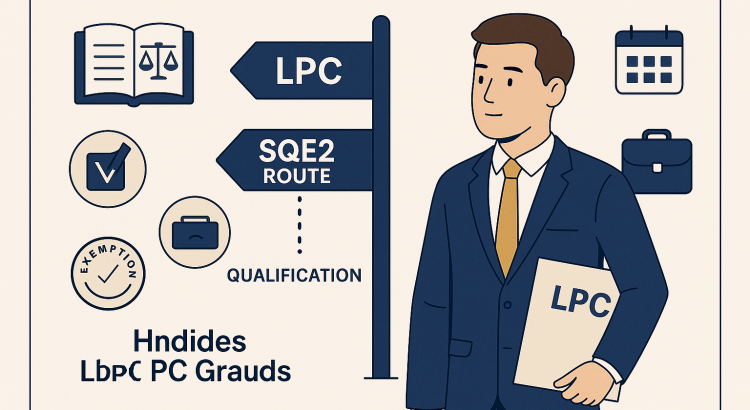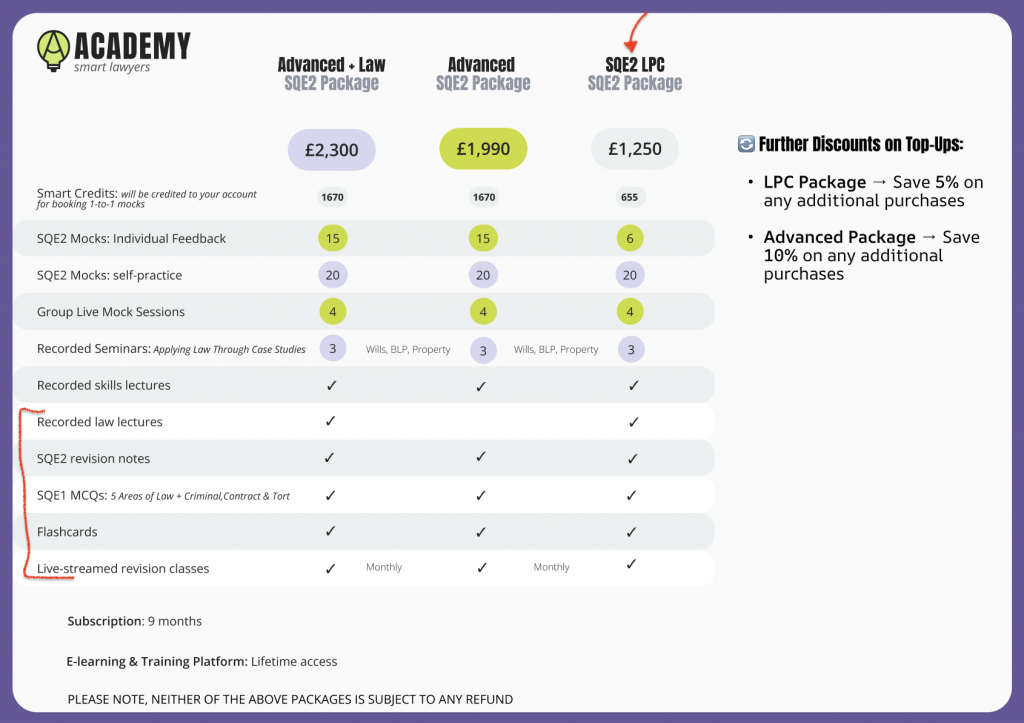If you are a legal practice course (LPC) grad, the new Solicitors Qualifying Exam (SQE) opens a great opportunity in order to reach your goal and qualify as a solicitor of England and Wales.
Whether you’re preparing for SQE1 or SQE2, our specialised resources are here to guide you every step of the way:
SQE For LPC
SQE2 Training
SQE2 Mocks
Retake SQE2
One of the reasons behind the development of the SQE is to remove the injustice under the old regime of training contracts. The inability to obtain a training contract does not mean that you do not have the necessary qualities to become a solicitor.
Even though there is arguably a demand in the UK market for more qualified solicitors, the old system of qualification created barriers for many talented people. The new SQE aims to remove these barriers, albeit remaining a tough task to tackle.
LPC graduates have certain advantages over other aspiring solicitors, especially if you have been working for many years as a legal assistant, paralegal, legal clerk, foreign attorney or similar. Now the SQE, or ‘super exam’, opens the door to non-law graduates who wish to pursue a future career in law. Since the exam is competitive and comparative, the legal knowledge and experience, which many LPC grads already possess, provides you with a serious advantage over other categories of candidates.
Before qualifying as solicitors of England and Wales, many members of our team completed the LPC course at the top UK universities, such as Nottingham Law School, University of Law, University of West England and BPP. Also, having first-hand experience of passing the QLTS after completion of the LPC, we have been successfully assisting the LPC graduates to clear the examination. Due to the introduction of the SQE, we have developed a tailored ‘SQE2 LPC’ package to effectively address the needs of this category of applicants. In order to access the package, you must register on the SUPERexam platform. All training is conducted via the platform, where you can book 1-to-1 SQE2 mock sessions.
SQE1 Exemptions for LPC Graduates
LPC graduates hold a unique position when transitioning to the SQE framework. The SRA recognises the comprehensive legal training undertaken during the LPC. Notably, LPC graduates are exempt from taking SQE1.
However, there’s one critical challenge facing LPC graduates taking the SQE2: the need to substantially revisit and refresh their legal knowledge, as they are exempt from the SQE1. This issue was recently highlighted in a widely shared anonymous article on Legal Cheek, which echoed the concerns many LPC grads have expressed. The root of the problem lies not only in knowledge gaps, but also in the different assessment format. Many LPC graduates come from a background of traditional coursework and exam-style assessments – and often underestimate the SQE2’s practical, skills-based approach. As a result, even capable candidates find themselves struggling or failing on their first attempt.
We want you to know: you’re not alone – and we’re here to help.

SQE for an LPC Graduate Who Is Also a Foreign Lawyer
For LPC graduates who are also qualified lawyers in jurisdictions outside the UK, the route to becoming a solicitor in England and Wales through the SQE involves several considerations. These individuals must choose whether to proceed under the foreign lawyer exemption pathway or the standard SQE route, which may require them to sit the SQE1 exam.
If opting for the foreign lawyer exemption pathway, such candidates may be exempt from SQE1 if they can demonstrate substantial experience and knowledge of English law, equivalent to that expected of a UK-trained solicitor. However, they would still need to pass SQE2 unless they obtain an exemption based on their prior qualifications and experience. This pathway does not require the completion of two years of QWE, potentially offering a faster route to qualification for experienced lawyers.
Alternatively, if they choose to follow the standard SQE route, LPC graduates who are also foreign lawyers would need to undertake both SQE1 and SQE2 and complete the two-year QWE requirement unless specific exemptions apply. This route may be preferred by those seeking to address gaps in their knowledge of English law or align more closely with the traditional solicitor training framework in England and Wales.
In either case, LPC graduates who are also foreign lawyers should carefully consider their individual circumstances, career goals, and the SRA’s requirements to determine the most suitable and efficient pathway to qualification.
Common reasons LPC graduates fail (based on QLTS OSCE experience / equivalent to SQE2)
- Overestimation of your readiness and underestimation of the exam’ standards;
- Poor exam techniques and misunderstanding of the marking criteria;
- Poor performance in particular skill-set(s).
We understand the expenses involved, including LPC costs already beared by you and your individual needs to tailor the prep. It is essential to identify your weaknesses in order to maximise your future performance and we are happy to help with that.
LPC vs SQE
LPC grads commonly question if they can rely on their LPC grades and LPC course as a guidance for the SQE or what the difference is between the two? Since the SQE assesses aspiring solicitors on both law and skills, so too should you approach it from both perspectives. The SQE goes beyond the scope of the LPC, plus there may have been substantial developments in the law since you graduated:
- We estimate that approximately 20% of the law tested in the SQE is beyond what is covered in the LPC course; and
- The standard of the skills required for the SQE is that of a junior solicitor (after two years of training contract), not a trainee solicitor as for the LPC.
- Plus, the SQE has its own exam specifics and techniques and is very much different from LPC exams.
(i) Skills: In order to understand the difference in skills between LPC exam papers and what is deemed to be up to the level of a newly qualified solicitor, please see the Threshold standard provided by the SRA. The required standard in order to pass the SQE is at level three. The video below will provide more details and help you decide when it comes to LPC vs SQE .
(ii) Law: In order to understand the difference in law between your LPC modules and the SQE, please see the Statement of legal knowledge. Try to compare it with your LPC course syllabus. The video below will provide more details and help you decide when it comes to LPC vs SQE .
How the Academy of Smart Lawyers Can Help You with the SQE
Join our dynamic community, where expert tutors, foreign-qualified lawyers, and individuals from diverse backgrounds collaborate. We specialise in SQE2 preparation through SQE2 mock simulations, emphasising ‘active teaching’ and ‘mistakes driven learning’ to ensure you receive the best SQE prep course available.
- Expert tutors who have successfully passed the SQE.
- Specialised support for foreign-qualified individuals and those without a legal background.
- Comprehensive SQE2 training, including SQE2 mock exams.
- Valuable tips and tricks for mastering both SQE1 and SQE2, with access to essential SQE1 materials, SQE MCQs, and targeted SQE lectures.
- Ongoing support for your professional growth.
SQE FAQ
What is the LPC?
The Legal Practice Course (LPC) is a postgraduate course that is usually taken after the successful completion of an undergraduate degree or a conversion course such as the Graduate Diploma in Law (GDL) / Common Professional Examination (CPE) (often referred to interchangeably as GDL/CPE).
LPC students have the choice to pursue either full-time or part-time studies, which they normally complete in 12 and 24 months, respectively, or even to take fast-track programmes.
The Legal Practice Course is regulated by the Solicitors Regulation Authority (SRA), whose website supplies a list of institutions authorised to provide the LPC. Click here to find the list.
Course Structure
The LPC is divided into two freestanding stages.
Stage one involves the study of core practice areas:
- Business
- Property
- Litigation (Civil and Criminal)
- Wills and Administration of Estates
- Solicitors’ Accounts
- Professional Conduct and Regulation

Plus the mastering of skills:

Stage two covers three elective modules, the topics of which can vary depending on the course provider.
For example, at BPP Law School you can choose from Corporate Finance, Commercial Law and Intellectual Property, Media and Entertainment Law or Immigration Law.
The University of Law offers a wider range of electives:
|
|
The list of options from Nottingham Law School:
|
|
LPC Application Deadline
In September 2021, the LPC was replaced by the Solicitors Qualifying Examination (SQE).
If, before the introduction of the SQE, candidates have already started or completed the LPC, or paid a non-refundable deposit, they will be able to choose whether to qualify through the current route or take the SQE.
Candidates who decide to proceed via the current route will also need to meet the following conditions by 31 December 2032:
- complete a period of recognised training (training contract)
- meet the SRA’s character and suitability requirements.
As asserted by the Solicitors Regulation Authority, the LPC law courses provided by universities will be approved up to at least the end of the 2025/26 academic year, although it is expected that the better part of LPC prep courses may be abolished before then due to reduced demand for the Legal Practice Course.
How Much Does the LPC Cost?
The cost for full-time courses varies greatly across the country, ranging between £12,000 and £17,000.
LPC tuition fees at various universities may be dependent on:
- the location you choose to study in
- whether you enroll in a whole course or take each stage separately
- the study routes you choose (full-time or part-time).

